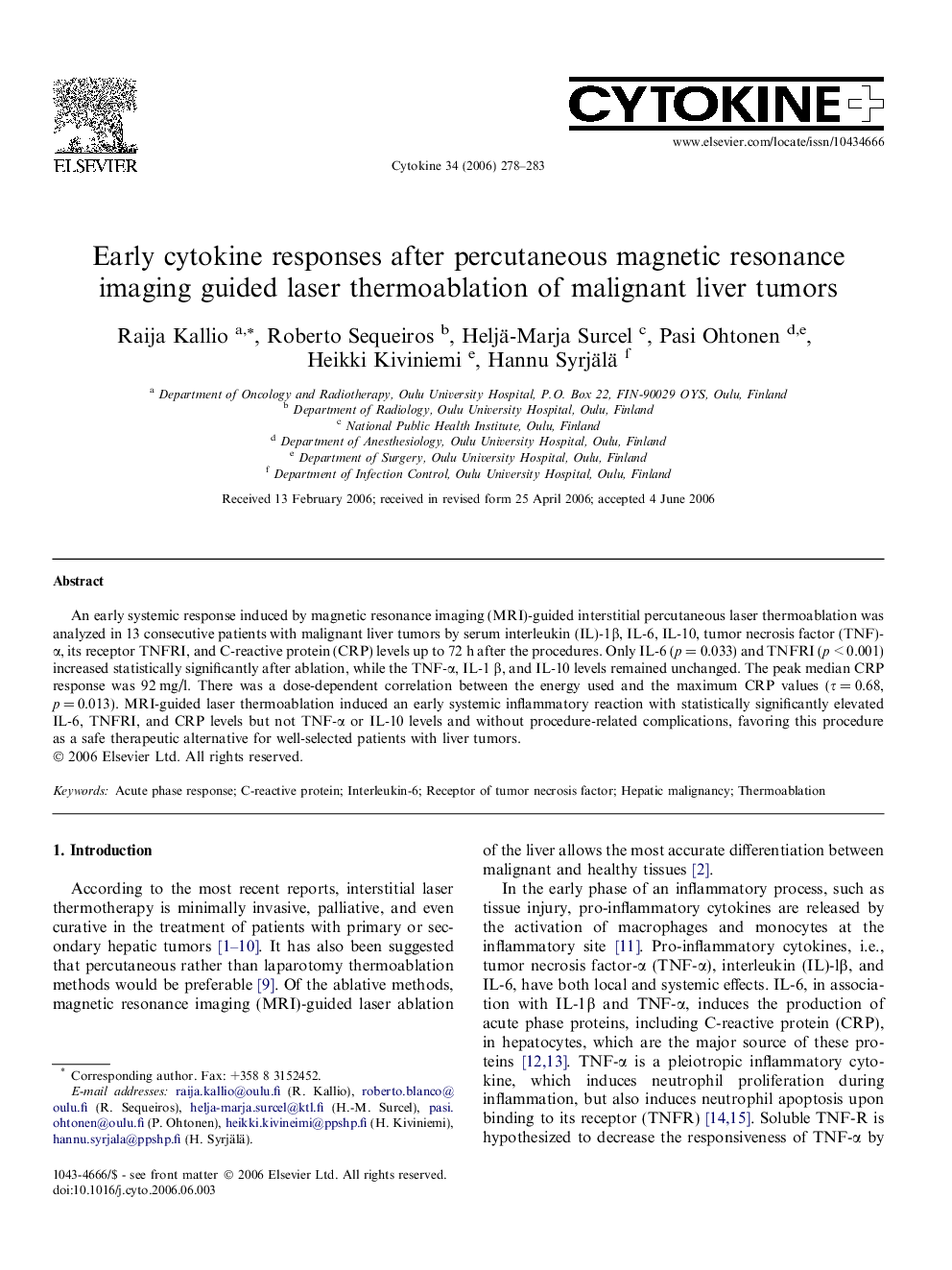| Article ID | Journal | Published Year | Pages | File Type |
|---|---|---|---|---|
| 2795980 | Cytokine | 2006 | 6 Pages |
An early systemic response induced by magnetic resonance imaging (MRI)-guided interstitial percutaneous laser thermoablation was analyzed in 13 consecutive patients with malignant liver tumors by serum interleukin (IL)-1β, IL-6, IL-10, tumor necrosis factor (TNF)-α, its receptor TNFRI, and C-reactive protein (CRP) levels up to 72 h after the procedures. Only IL-6 (p = 0.033) and TNFRI (p < 0.001) increased statistically significantly after ablation, while the TNF-α, IL-1 β, and IL-10 levels remained unchanged. The peak median CRP response was 92 mg/l. There was a dose-dependent correlation between the energy used and the maximum CRP values (τ = 0.68, p = 0.013). MRI-guided laser thermoablation induced an early systemic inflammatory reaction with statistically significantly elevated IL-6, TNFRI, and CRP levels but not TNF-α or IL-10 levels and without procedure-related complications, favoring this procedure as a safe therapeutic alternative for well-selected patients with liver tumors.
